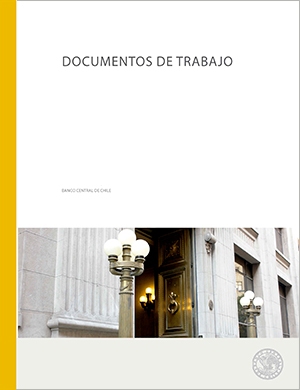Working Papers N° 889: Surveying the survey: What can we learn about the effects of monetary policy on inflation expectations?
Publications
Working Papers N° 889: Surveying the survey: What can we learn about the effects of monetary policy on inflation expectations?
Autor: Michael Pedersen
Description
The replies to a questionnaire that was sent to the participants in the Chilean Financial Traders Survey (FTS) reveal heterogeneity in how they make their forecasts. There are also differences in how the traders understand questions regarding the future monetary policy rate (MPR); some of them answer what they think the central bank will do, while others what they think it should do. The FTS is distinctive from similar surveys in the sense that it is conducted immediately before and after the monetary policy meetings. This study employs a novel dataset that consists of FTS micro observations to assess the extent to which heterogeneity in the replies to the questionnaire affects how agents take into account MPR surprises when updating their inflation expectations.
While the should-do traders incorporate MPR surprises in their one-year-ahead inflation expectations, it is not evident that will-do respondents do so. This could imply that the “model” traders have in mind includes an endogenous MPR path, which is not necessarily in accordance with what they think the central bank is going to do in the short run. The baseline estimates suggest that agents that merely base their forecasts on models do not seem to factor in MPR surprises in their inflation expectations updates, but small sample corrected standard errors indicate that the should-do traders might. On the other hand, for those that use information only from financial markets, only the will-do traders adjust inflation expectations in response to MPR surprises, which could be because asset prices incorporate what the market thinks the central bank is going to do. Two-years-ahead inflation expectations are not affected by MPR surprises. The results help to understand heterogeneity in forecasters’ inflation updates and stress the importance of understanding on what basis survey respondents answer the questions.
Working Papers N° 889: Surveying the survey: What can we learn about the effects of monetary policy on inflation expectations?
Boxes and graphics

